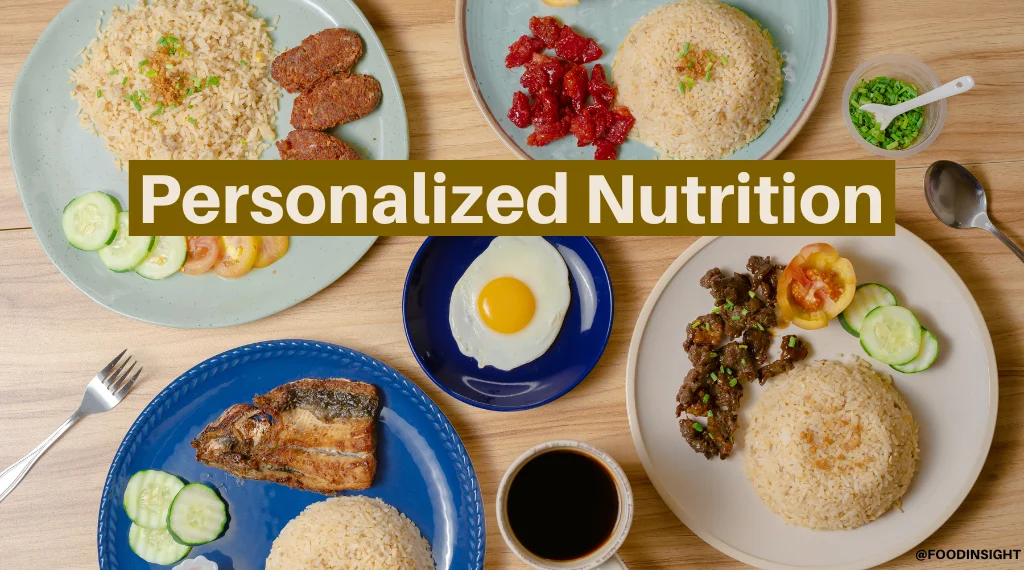
In recent years, a more personal approach to healthcare has grown in popularity. At the same time, consumers have become increasingly aware that “healthy” doesn’t mean the same thing to everybody—not to mention that defining what constitutes full health and wellness is a demanding task for anyone.
What’s more, the Healthy Eating Index of Americans, which represents how healthfully individuals in the U.S. eat, indicates that there’s room for improvement for all of us—with an average healthy eating score of 58 out of 100. But while many of us would like to improve our diets, barriers such as daily stresses; work, family, and school responsibilities; budget constraints; and lack of complete knowledge about nutrition can make healthy eating challenging.
Is there a better, more targeted approach to helping people make healthier lifestyle changes? A burgeoning field known as personalized nutrition aims to bridge the gap. In this article, we’ll cover the basics of personalized nutrition, including what it is, how it works, and its potential limitations.
The basics of personalized nutrition
Good nutrition is critical to human growth, development, and disease prevention. Personalized nutrition tailors general, population-based nutrition advice to a particular person’s needs and preferences while considering unique characteristics like individual lifestyle, socioeconomic status, race or ethnicity, health history, DNA, and gender.
Personalized nutrition is often used interchangeably with similar approaches and terms, including nutritional genomics, nutrigenomics, nutrigenetics, and precision nutrition. Dr. Christopher Lynch, from the National Institutes of Health (NIH) Office of Nutrition Research, notes that precision nutrition is “a holistic approach to develop individualized, actionable dietary recommendations for what, when, why, and how to eat to optimize health and quality of life.” In 2022, the NIH awarded $170 million to centers and clinics all across the U.S. to study personalized nutrition in individuals.
More research will get us closer to learning the effects of food on complex mechanisms like the human microbiome, genetics, and other biological factors. According to the Centers for Disease Control and Prevention (CDC), six in ten Americans live with diseases such as diabetes, cancer, and heart disease. Many of these diseases are the leading causes of death in the U.S. and across the world, and it’s well understood that poor nutrition is a top driver of these chronic diseases. As Americans, we can make better health choices that prolong our longevity and increase our quality of life—and personalized nutrition can help by challenging the lingering dogma that there is one way that everyone should eat for optimal health.
How does personalized nutrition work?
While many registered dietitian nutritionists (RDNs) already assess personal goals, physical activity, dietary habits, and sleep behaviors on behalf of their patients and clients, personalized nutrition involves an even more in-depth approach. For example, have you ever wondered why caffeinated or alcoholic beverages affect people differently? The answer may exist beyond what’s in each person’s cup, instead having to do, at least in part, to individual genetic makeups.
Targeted nutrition recommendations can start with a thorough nutrition assessment and routine lab testing and then graduate to more specific lab testing, biochemical tests, genetic tests, and omics. “Omics” refers to techniques and tools that analyze some of the smallest parts of human biology, and can include a variety of study areas, such as genomics (encompassing genes, DNA, chromosomes, and the gut microbiome) and metabolomics (analyzing metabolites such as carbohydrates, proteins, and fats). These detailed tests take a deep dive into how food and nutrients interact with an individual’s personal biology, thus potentially shedding light on personal nutrition needs.
Personalized nutrition: A seeming win-win—but are there drawbacks?
The main limitation of personalized nutrition is that large gaps still exist when it comes to what we know about the relationships among our eating patterns, our genes, and the way these two factors interplay with our other individual behaviors and our environments. Diseases like obesity and diabetes are complex and multifaceted—in general, we can’t just flip one switch and solve the entire problem. For example, multiple genetic pathways are known to predispose people to gaining weight or having trouble controlling their blood sugar. And those predispositions may act separately from (or in conjunction with) a person’s lifestyle habits, gut microbiome composition, and environment to influence that person’s risk for developing specific health conditions.
Additionally, one shortcoming of personalized nutrition – and some types of nutrition research – is its reliance on understanding precisely what a person eats and drinks, which is essential in determining how our bodies respond to different foods and nutrients. Let’s say that you find out about a genetic variation that affects the way you digest dietary fat, and your doctor recommends eating more heart-healthy omega-3 fatty acids to make up for it. They’d probably want to track how much salmon or canola oil—foods that are high in omega-3s—you ate to see how these foods affected your health. A potential challenge of this approach? Research demonstrates that variations in human psychology can affect the way we document what we eat. For a multitude of reasons, some people may intentionally not divulge or be able to remember specific amounts of certain foods or beverages that they consumed last week. Even when we try our best to be honest, recalling food intake from memory can be tough to do, which makes a fully accurate food-tracking mechanism hard to come by.
The good news? New technologies, including artificial intelligence, advancements in food recall methods, diet-tracking apps, and machine learning may have the capacity to improve the accuracy of the most common dietary intake assessments, potentially leading to the ability to provide more targeted nutrition guidance to those who need it.
The bottom line
Personalized nutrition aims to tailor nutrition advice for individuals based on unique factors such as their genetics, lifestyle patterns, and lab-test data. But what does the future hold for personalized nutrition? While more studies illuminating the possibilities of personalized nutrition are certainly needed, in the decades to come we hope to have a better understanding of how individualized nutrition and lifestyle recommendations can improve our health at every stage of life.



